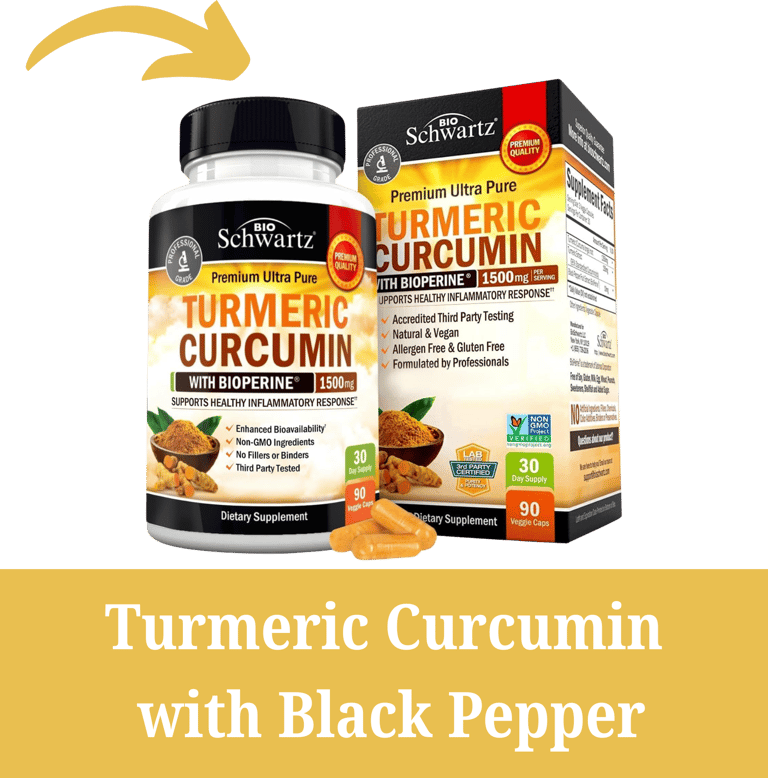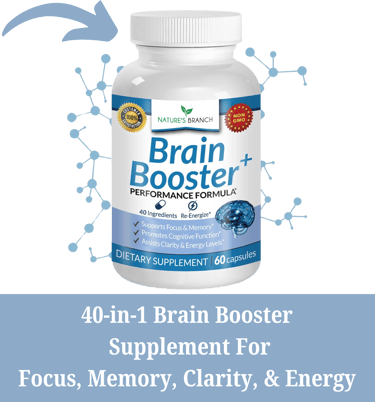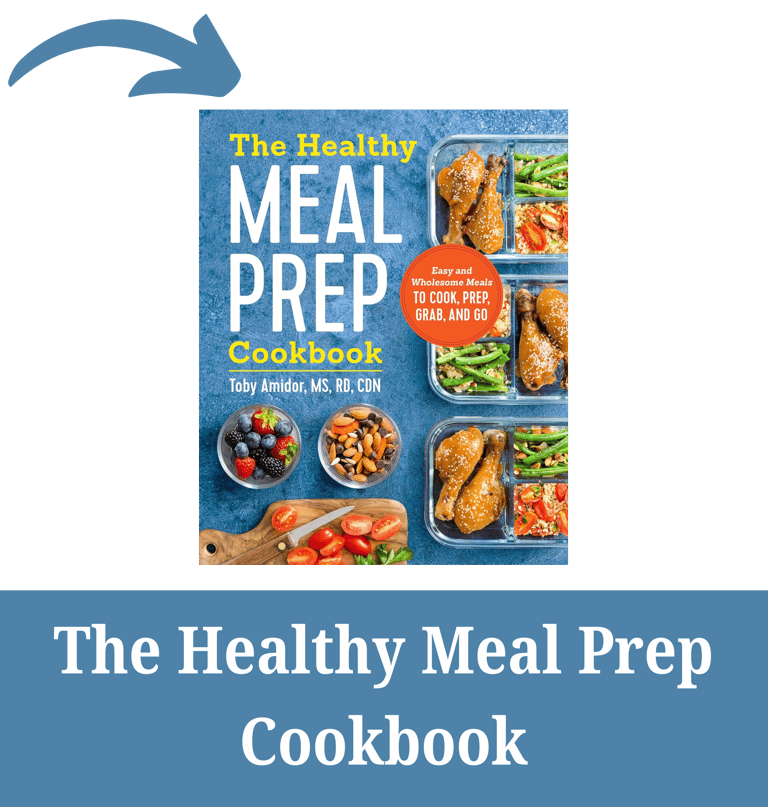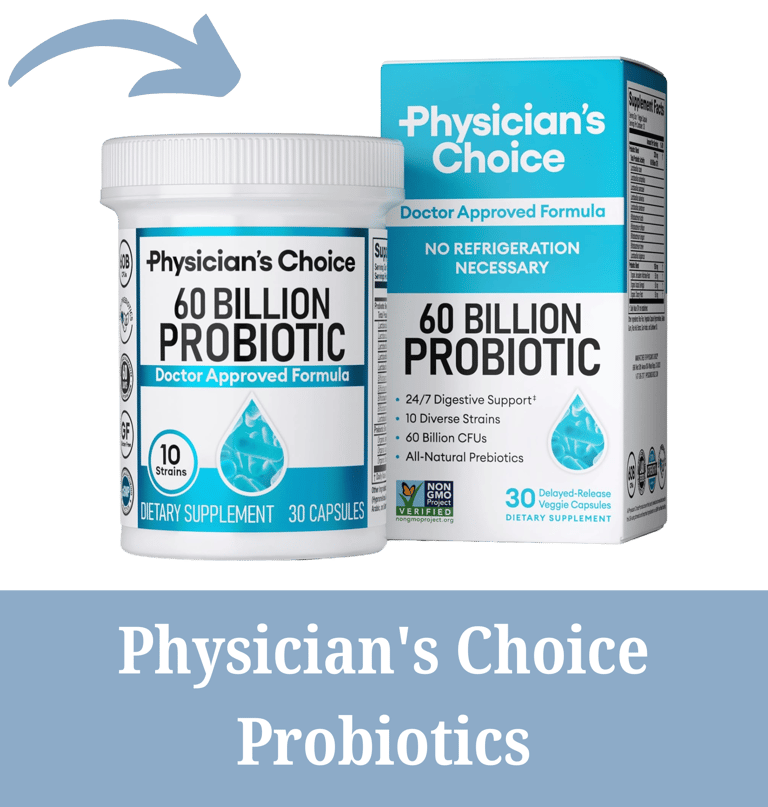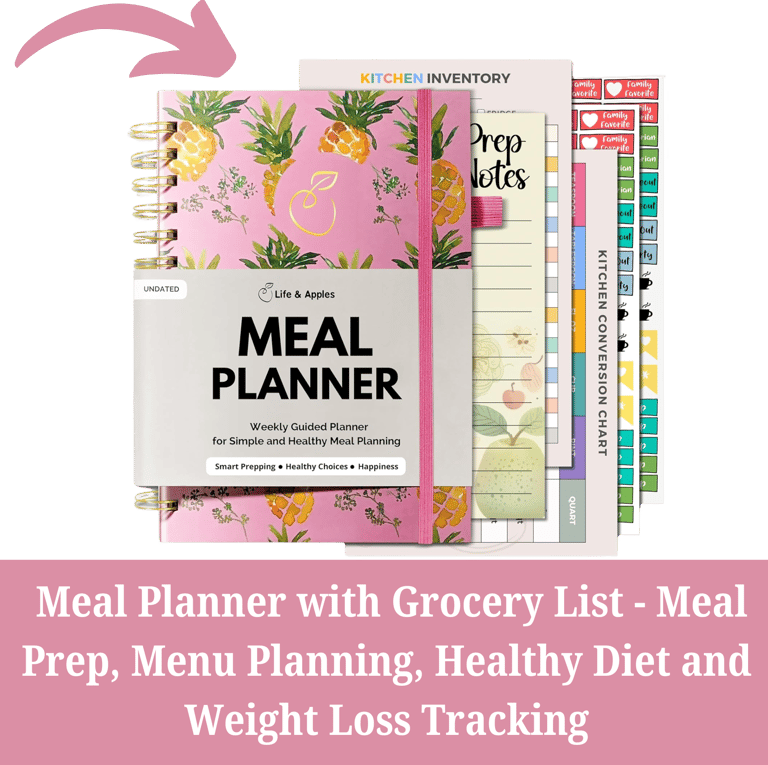The Ultimate Guide to Brain-Boosting Foods: Enhance Your Mental Well-being Through Diet
Discover science-backed foods that boost mental health, from omega-3 rich fish to mood-enhancing probiotics. Learn how to improve your emotional well-being through strategic dietary choices and practical meal planning tips.
HEALTH & WELLNESS
Shari Smith
12/31/202410 min read
As an Amazon affiliate, we earn commissions at no extra cost to you if you click our links and make a purchase.
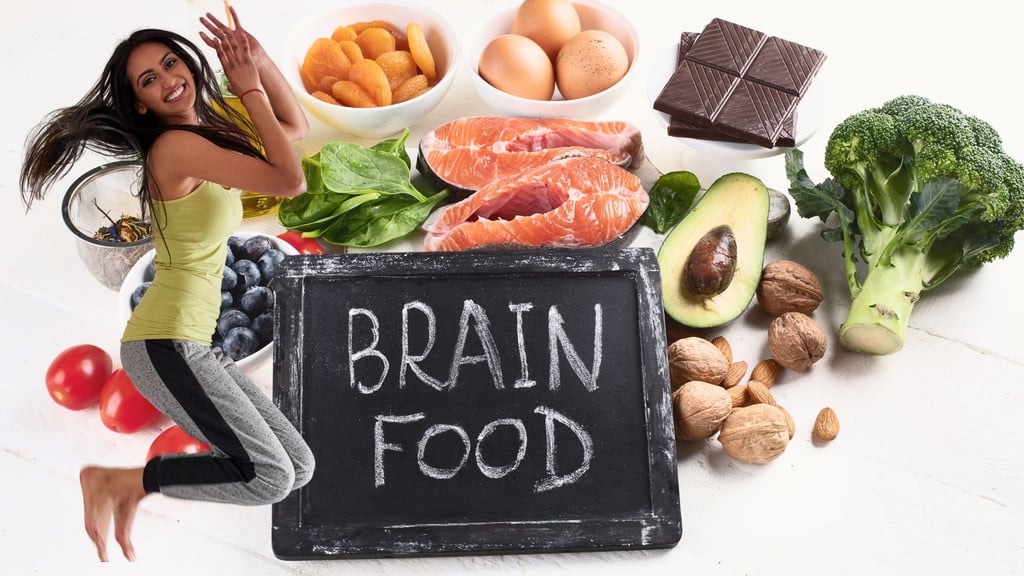

The food we eat doesn't just fuel our bodies – it profoundly impacts our mental state and emotional well-being. Recent scientific research has unveiled strong connections between dietary choices and mental health, showing that certain foods can enhance mood, reduce anxiety, and even help combat depression.
As we understand more about the gut-brain connection, it's becoming increasingly clear that the path to better mental health often begins on our plates. This comprehensive guide will explore how specific nutrients and foods can support your psychological well-being and provide practical strategies for incorporating them into your daily life.
The Foundation: Understanding the Diet-Mental Health Connection
The relationship between diet and mental health operates through multiple pathways. Your brain requires a constant supply of nutrients to function optimally, produce neurotransmitters, and maintain its structure. When we don't provide our bodies with the right nutritional building blocks, it can affect everything from our mood to our cognitive function. Poor dietary choices can lead to inflammation, oxidative stress, and hormonal imbalances – all of which can negatively impact mental health.
Key Nutrients That Support Mental Well-being
Omega-3 Fatty Acids: The Brain's Best Friend
Omega-3 fatty acids, particularly EPA and DHA, are crucial components of brain cell membranes and help facilitate neural communication. Research shows that populations consuming more omega-3-rich foods have lower rates of depression and anxiety. The best sources include:
Fatty fish like salmon, mackerel, and sardines
Walnuts and flaxseeds
Chia seeds
Algae-based supplements for vegetarians
The B-Vitamin Complex: Mood Regulators
B vitamins play essential roles in producing neurotransmitters that regulate mood and energy levels. Deficiencies in B vitamins, particularly B12 and folate, have been linked to depression and cognitive decline. Rich sources include:
Whole grains
Leafy greens like spinach and kale
Legumes
Nutritional yeast
Eggs and dairy products
Protein: Building Blocks for Well-being
Proteins provide the amino acids necessary for producing neurotransmitters like serotonin and dopamine. Ensuring adequate protein intake is crucial for maintaining stable mood and energy levels. Excellent sources include:
Lean meats and poultry
Fish and seafood
Legumes and beans
Greek yogurt
Quinoa and other complete plant proteins
Antioxidants: Protecting Brain Health
Antioxidants help protect brain cells from oxidative stress and inflammation, which can contribute to mental health issues. The best sources are colorful fruits and vegetables, particularly:
Blueberries and other dark berries
Dark chocolate (70% cocoa or higher)
Pomegranates
Sweet potatoes
Green tea
Specific Foods That Boost Mental Well-being
Mood-Enhancing Superfoods
Dark Chocolate
Rich in flavonoids and compounds that boost endorphin production, dark chocolate can improve mood and reduce stress levels. Studies show that consuming dark chocolate regularly can lower cortisol levels and improve emotional well-being.
Fermented Foods
Probiotics found in fermented foods support gut health, which directly impacts mental well-being through the gut-brain axis. Include these foods:
Yogurt
Kimchi
Kombucha
Sauerkraut
Kefir
Leafy Greens
Rich in folate and other nutrients that support neurotransmitter production, leafy greens are essential for mental health. Regular consumption has been linked to slower cognitive decline and better emotional regulation.
Dietary Patterns for Optimal Mental Health
The Mediterranean Diet Connection
The Mediterranean diet has been consistently linked to better mental health outcomes. This eating pattern emphasizes:
Abundant plant foods
Healthy fats from olive oil and nuts
Moderate amounts of lean protein
Limited processed foods and sugars
Mindful Eating Practices
Developing a mindful approach to eating can enhance the mental health benefits of your food choices:
Eat without distractions
Pay attention to hunger and fullness cues
Appreciate the colors, smells, and textures of your food
Take time to enjoy your meals
Foods to Limit or Avoid
The Impact of Processed Foods
Highly processed foods can contribute to inflammation and mood disturbances. Limit:
Sugary snacks and beverages
Refined carbohydrates
Artificial additives and preservatives
Trans fats
Common Types of Highly Processed Foods
Packaged Snack Foods
Potato chips and corn chips
Pretzels and crackers with added flavors
Microwave popcorn
Pre-packaged cookies and snack cakes
Processed cheese products and spreads
Convenience Foods
Instant noodles and soups
Frozen meals and TV dinners
Boxed macaroni and cheese
Pre-made frozen pizza
Practical Implementation Strategies
Building a Mental Health-Supporting Meal Plan
*Start with a protein-rich breakfast
Begin your day with high-quality protein sources like eggs, Greek yogurt, or lean meats to fuel your body and brain. A protein-rich breakfast helps stabilize blood sugar levels, reduces cravings throughout the day, and provides sustained energy for morning activities. Research shows that consuming 20-30 grams of protein at breakfast can improve focus, support muscle maintenance, and help maintain a healthy weight.
*Include a variety of colorful vegetables at each meal
Fill your plate with different colored vegetables to ensure you're getting a wide range of nutrients, antioxidants, and fiber. Different colors indicate different beneficial compounds – for example, red vegetables contain lycopene, while green vegetables are rich in folate and chlorophyll. Aim to include at least three different colored vegetables in your main meals to maximize nutritional benefits.
*Plan regular meals and snacks to maintain stable blood sugar
Eating at consistent times throughout the day helps regulate your body's hunger signals and prevents blood sugar crashes that can lead to overeating. Schedule your meals and snacks every 3-4 hours to maintain steady energy levels and support optimal brain function. This regular eating pattern helps prevent the extreme hunger that often leads to poor food choices.
*Prepare meals in advance to ensure healthy choices are available
Take time during less busy periods, such as weekends, to plan and prepare meals for the upcoming days. Having healthy meals readily available reduces the temptation to order takeout or grab processed convenience foods when you're tired or stressed. Meal preparation also saves money and reduces food waste while ensuring you have nutritious options always at hand.
Essential Foods Rich in Omega-3s and B Vitamins
Omega-3 Rich Foods
B Vitamin Rich Foods
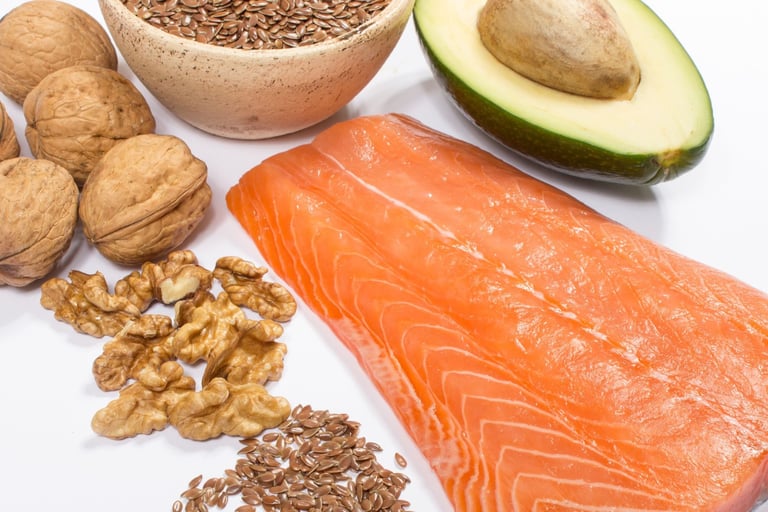

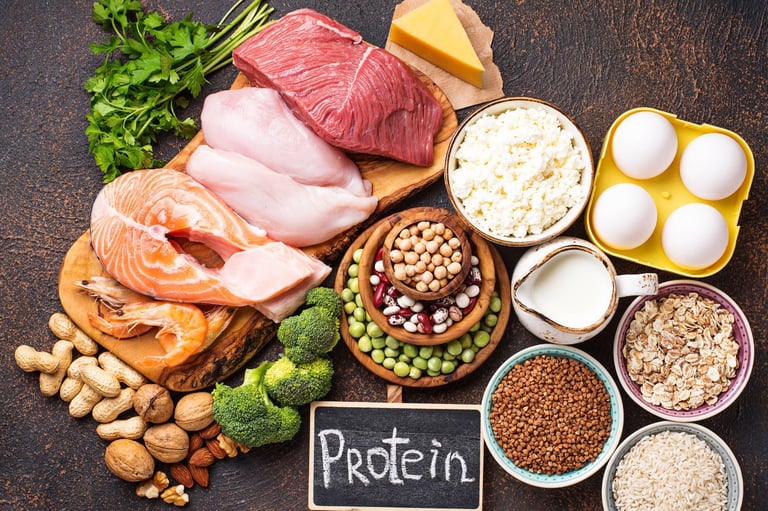

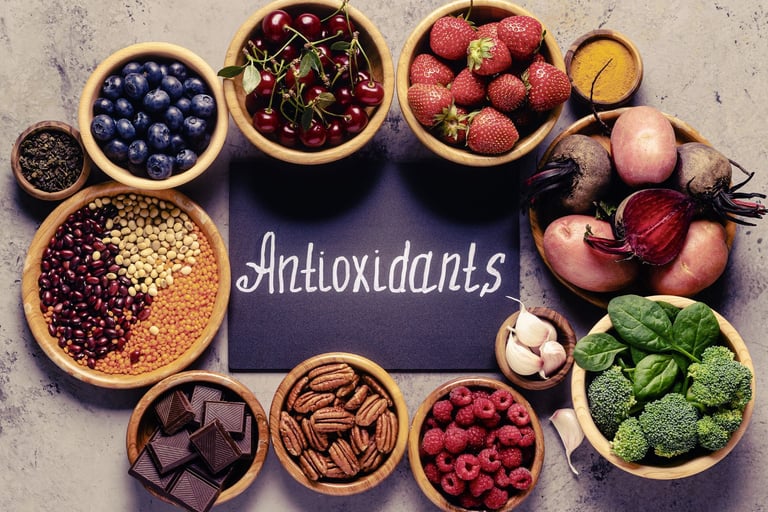



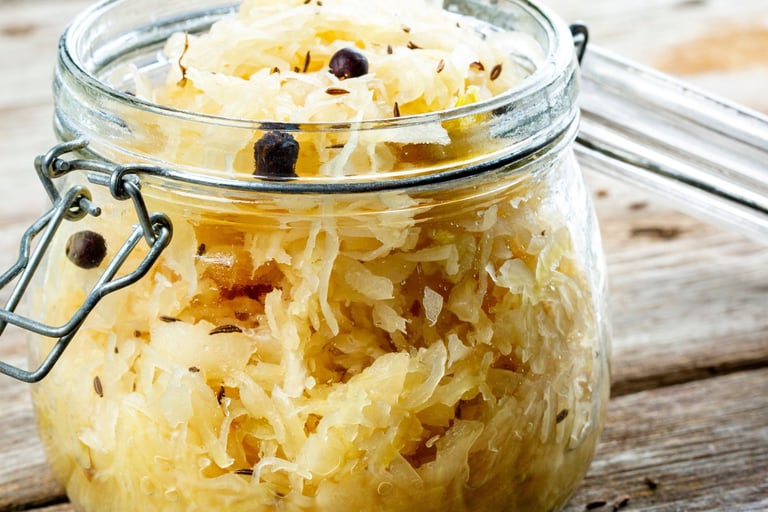

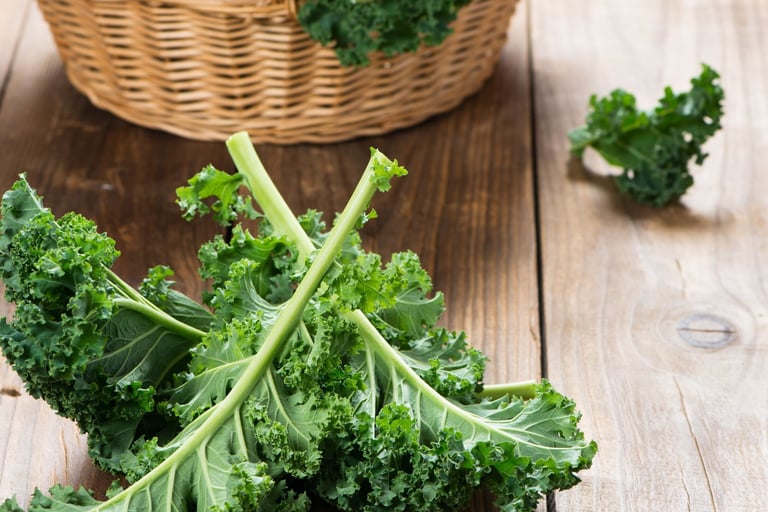

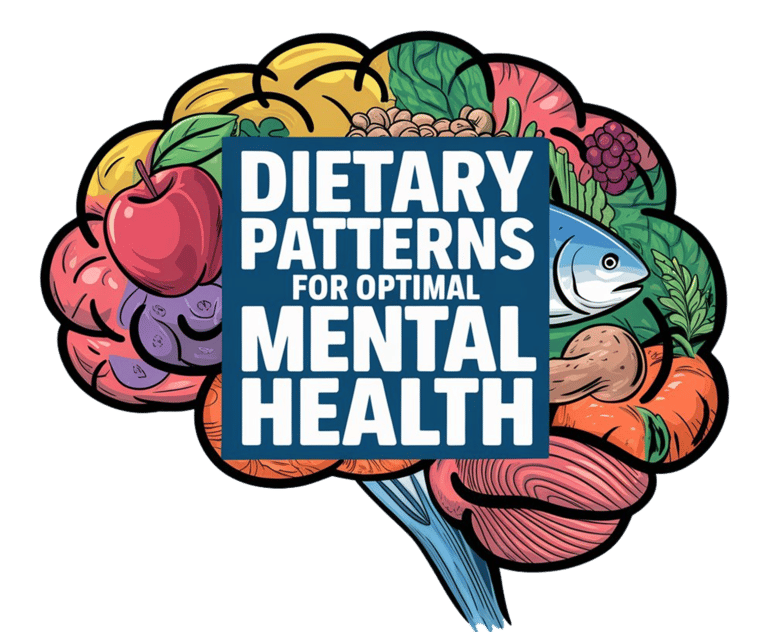



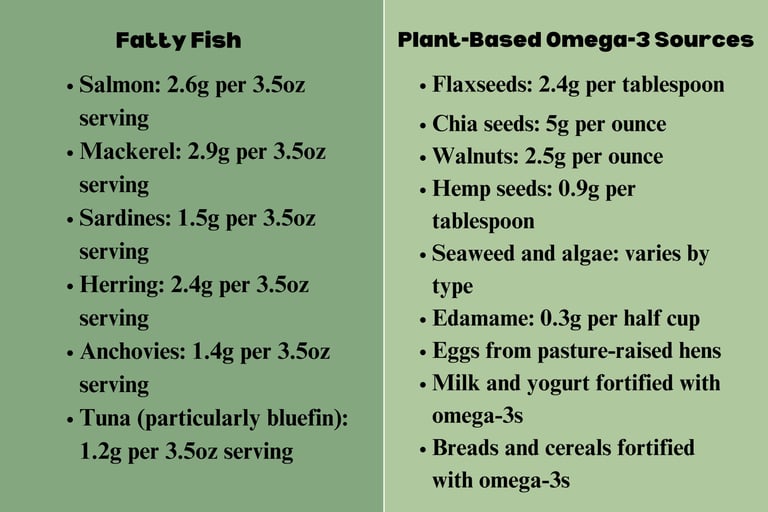

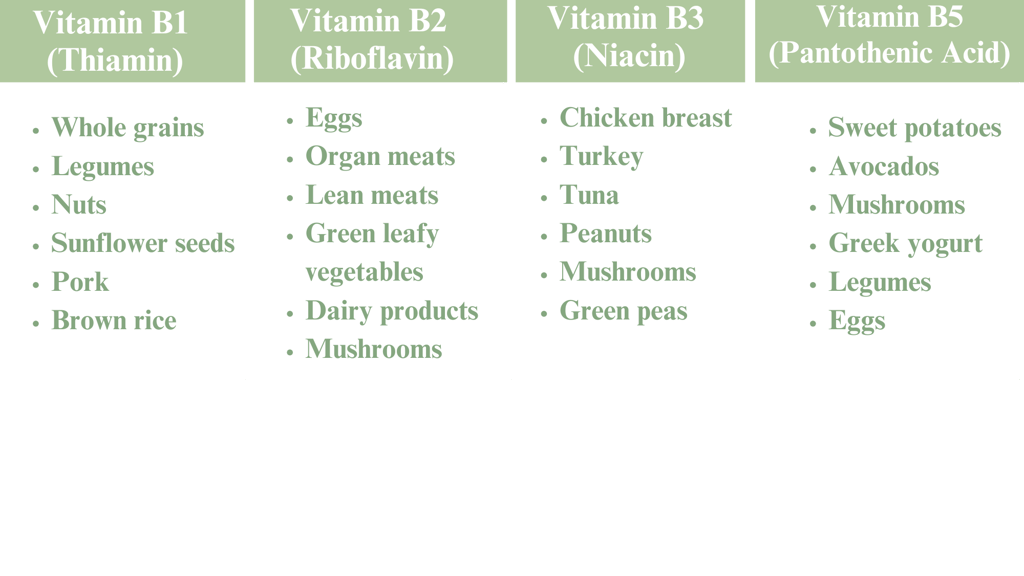

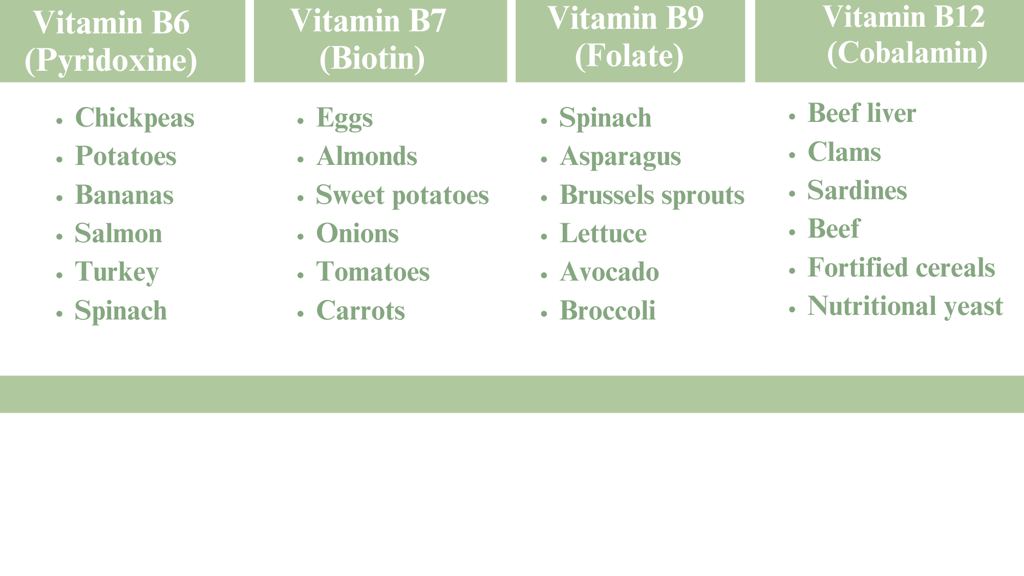

Mindful Consumption: How Beverages Impact Your Brain Health
When discussing brain-boosting nutrition, it's crucial to understand how common beverages like coffee, tea, and alcohol interact with our brain chemistry and affect our mental well-being. While some beverages can complement a brain-healthy diet, others may counteract the benefits of your nutritious food choices.
Caffeine and Brain Function
Caffeine from natural sources like coffee, green tea, and dark chocolate can support brain health when consumed mindfully. Green tea, in particular, combines caffeine with L-theanine, an amino acid that promotes calm focus without jitters. However, excessive caffeine intake can:
Interfere with the absorption of brain-supporting nutrients
Disrupt the sleep necessary for mental recovery and brain repair
Impact the effectiveness of mood-stabilizing minerals like magnesium
Increase cortisol levels, potentially counteracting the benefits of anti-inflammatory foods
Alcohol's Effect on Brain Nutrition
While some studies suggest potential benefits from moderate red wine consumption due to its resveratrol content, alcohol generally works against your brain-healthy diet by:
Depleting B vitamins essential for neurotransmitter production
Interfering with the absorption of zinc and other minerals crucial for brain health
Disrupting blood sugar balance, which can negate the benefits of eating steady, nutritious meals
Dehydrating the body, which affects cognitive function and nutrient delivery to the brain
Optimizing Your Brain-Boosting Beverage Choices
To complement your brain-healthy diet, consider:
Starting your day with green tea instead of coffee for balanced, sustained energy
Choosing antioxidant-rich alternatives like:
Turmeric golden milk
Berry-based smoothies
Herbal teas with rhodiola or ginkgo
Coconut water for natural electrolytes
Hydrating with mineral-rich water to support nutrient transport to the brain
Limiting alcohol to occasional consumption to maintain the benefits of your nutritious diet
By making mindful beverage choices, you can enhance rather than diminish the positive effects of your brain-boosting food choices. Remember that hydration itself plays a crucial role in cognitive function and nutrient delivery to the brain, making water your best choice for supporting mental well-being through diet.


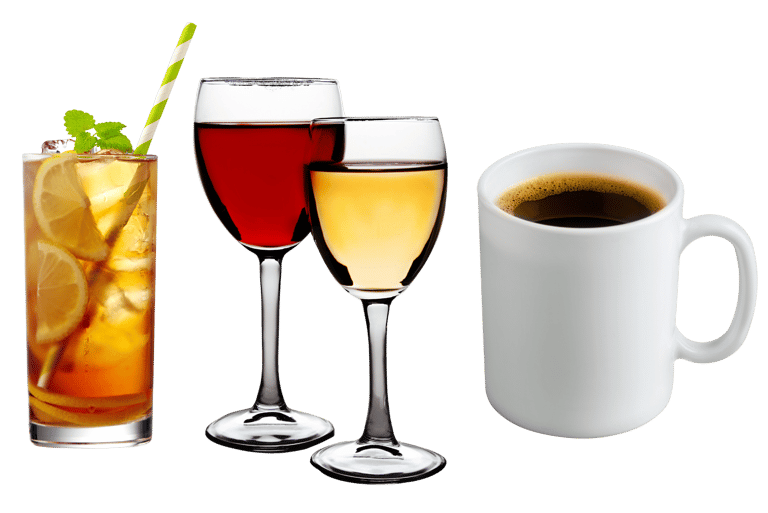



The 5 Most Powerful Food Combinations for Optimal Nutrition
1. Salmon + Leafy Green Salad with Olive Oil
Why It Works
Omega-3 fatty acids in salmon enhance absorption of fat-soluble vitamins (A, K, E) from greens
Olive oil increases the bioavailability of antioxidants in greens
Vitamin D in salmon helps calcium absorption from leafy greens
Optimal Serving
4-6 oz wild-caught salmon
2 cups mixed greens (spinach, kale, arugula)
1-2 tablespoons extra virgin olive oil
Fresh lemon juice to taste
Peak Benefits
Enhanced brain function
Improved heart health
Better bone strength
Reduced inflammation
Increased antioxidant absorption
2. Greek Yogurt + Berries + Walnuts
Why It Works
Probiotics in yogurt enhance nutrient absorption
Healthy fats in walnuts increase absorption of antioxidants from berries
Protein in yogurt provides sustained energy release with berries' natural sugars
Optimal Serving
1 cup plain Greek yogurt
1 cup mixed berries (blueberries, strawberries, raspberries)
¼ cup chopped walnuts
Optional: 1 teaspoon honey
Peak Benefits
Improved gut health
Enhanced cognitive function
Better blood sugar control
Strengthened immune system
Increased satiety
3. Eggs + Sweet Potatoes + Black Pepper
Why It Works
Iron absorption from eggs enhanced by vitamin C in sweet potatoes
Fat in eggs helps absorb beta-carotene from sweet potatoes
Black pepper increases nutrient bioavailability
Optimal Serving
2 whole eggs
1 medium sweet potato, roasted
Freshly ground black pepper
Pinch of sea salt
Peak Benefits
Improved iron absorption
Enhanced vision health
Better protein utilization
Increased energy levels
Stronger immune function
4. Lentils + Red Bell Peppers + Quinoa
Why It Works
Vitamin C from peppers enhances iron absorption from lentils
Complete protein formation from combining legumes and grains
Enhanced mineral absorption from complementary amino acids
Optimal Serving
½ cup cooked lentils
½ cup cooked quinoa
1 medium red bell pepper, sliced
Drizzle of olive oil
Fresh herbs to taste
Peak Benefits
Optimal protein synthesis
Better iron absorption
Sustained energy release
Improved digestive health
Enhanced mineral utilization
5. Turmeric + Black Pepper + Healthy Fats
Why It Works
Black pepper increases curcumin absorption from turmeric by up to 2000%
Healthy fats enhance absorption of turmeric's beneficial compounds
Synergistic anti-inflammatory effects
Optimal Serving
½ teaspoon turmeric
¼ teaspoon black pepper
1 tablespoon coconut oil or olive oil
Can be added to smoothies, soups, or golden milk
Peak Benefits
Maximum anti-inflammatory effects
Enhanced brain function
Better joint health
Improved digestion
Increased antioxidant activity
Tips for Maximum Benefits
Always pair fat-soluble vitamins (A, D, E, K) with healthy fats
Combine iron-rich foods with vitamin C sources
Eat protein with complex carbohydrates for sustained energy
Include fresh herbs and spices for enhanced nutrient absorption
Consider timing of meals for optimal nutrient utilization
Best Times to Consume
Salmon + Greens: Lunch or dinner
Yogurt + Berries: Breakfast or snack
Eggs + Sweet Potato: Breakfast or post-workout
Lentils + Quinoa: Lunch or dinner
Turmeric combination: Any time, ideally with meals
Cooking Methods to Retain Nutrients
For Omega-3s
Bake or broil fish instead of frying
Use low temperatures when cooking with omega-3 rich oils
Add nuts and seeds to dishes after cooking
Steam or poach fish to retain oils
For B Vitamins
Steam vegetables instead of boiling
Use minimal water when cooking
Keep cooking times short
Save cooking liquids for soups and sauces
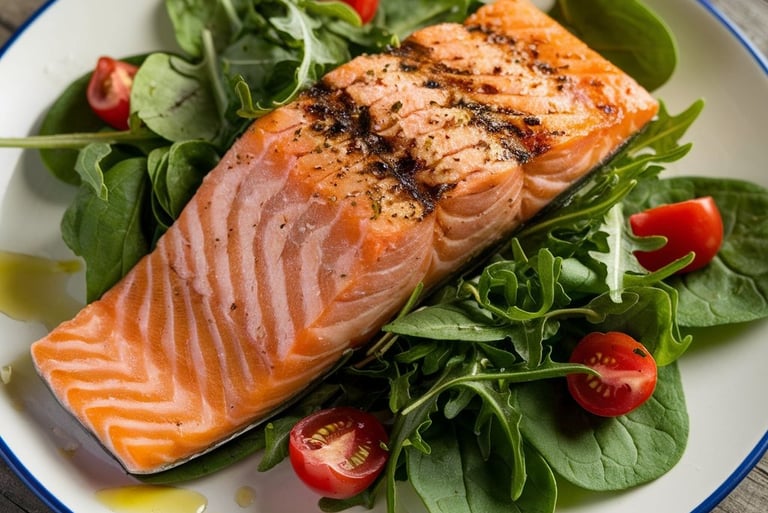

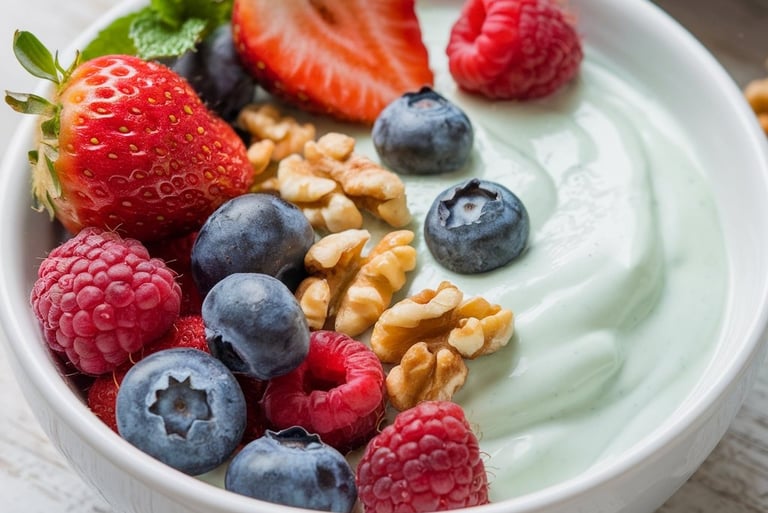

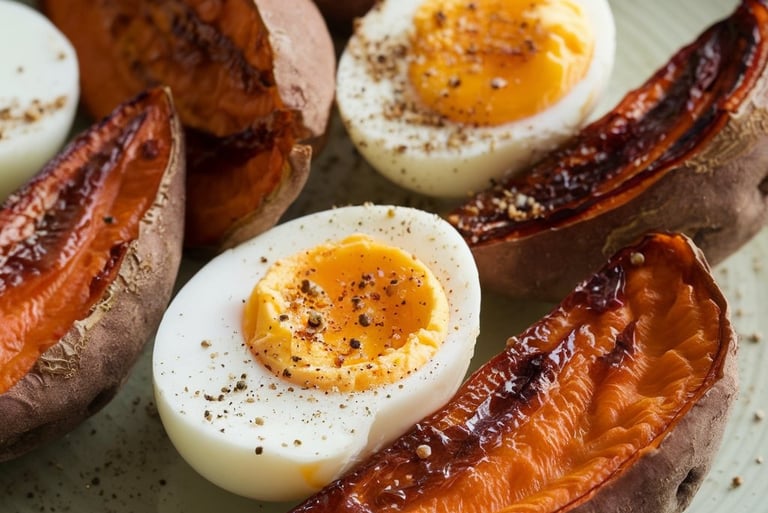

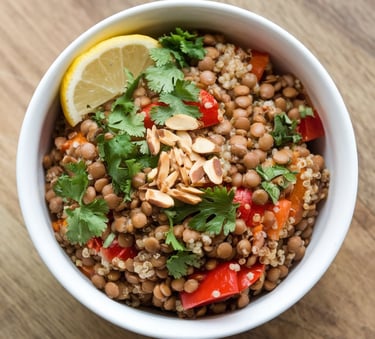

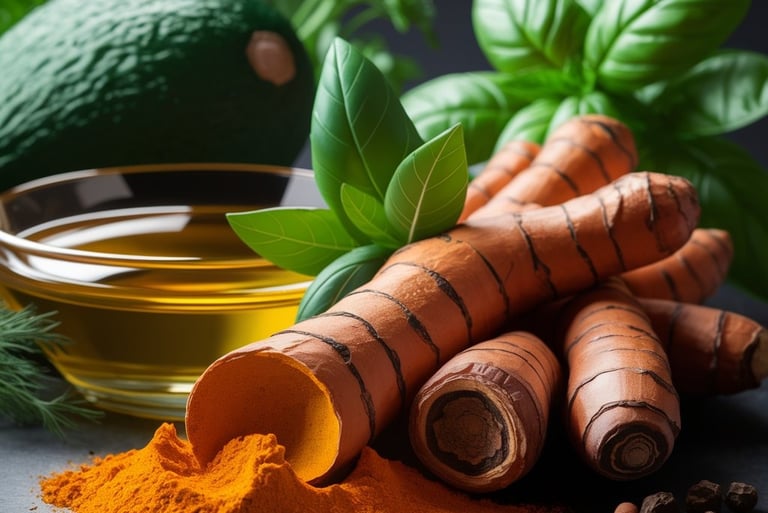

Supplements as Support for Brain Health
While whole foods should be your primary source of brain-boosting nutrients, there are times when a hectic lifestyle makes optimal eating challenging. Strategic supplementation can help bridge nutritional gaps during busy periods. However, it's essential to remember that supplements complement rather than replace a healthy diet.
Key Supplements for Mental Well-being
Omega-3 supplements (DHA/EPA): When fresh fish isn't readily available
B-complex vitamins: Supports energy and neurotransmitter production
Vitamin D3: Particularly important if you're mostly indoors
Magnesium: Helps with stress response and sleep quality
Probiotics: Supports gut-brain connection when fermented foods aren't accessible
Smart Supplementation Tips
Always consult with a healthcare provider before starting any supplement regimen. Choose high-quality supplements from reputable manufacturers, and remember to take them with food when appropriate. Keep a small supply at your office or in your bag for those especially busy days when meals might be delayed or compromised.
Remember: While supplements can help fill occasional gaps, they work best when combined with a foundation of nutrient-rich whole foods. Think of them as your backup plan rather than your primary strategy for brain health.
Conclusion
Improving mental well-being through diet is a powerful and accessible strategy for enhancing overall health. By incorporating brain-boosting foods and following a balanced, nutrient-rich eating pattern, you can support your mental health naturally. Remember that dietary changes should be gradual and sustainable, and it's important to combine healthy eating with other positive lifestyle habits like regular exercise, adequate sleep, and stress management techniques.
Frequently Asked Questions
Q: How long does it take to notice mental health improvements from dietary changes?
A: While individual experiences vary, many people report noticeable improvements in mood and energy levels within 2-4 weeks of making consistent dietary changes.
Q: Can food really replace mental health medication?
A: While nutrition plays a crucial role in mental health, dietary changes should not replace prescribed medications without consulting a healthcare provider. Diet should be viewed as a complementary approach to mental health treatment.
Q: What's the most important food group for mental health?
A: There isn't a single most important food group – mental health benefits come from a balanced diet including various nutrients. However, foods rich in omega-3s and B vitamins are particularly beneficial.
Q: Is it necessary to eat organic foods for mental health benefits?
A: While organic foods may reduce exposure to pesticides, the most important factor is eating a variety of nutrient-rich foods, regardless of whether they're organic.
Q: How can I improve my mental health through diet if I'm vegetarian/vegan?
A: Plant-based diets can absolutely support mental health. Focus on getting adequate B12 (through supplementation if necessary), plant-based omega-3s, and complete proteins from varied plant sources.

